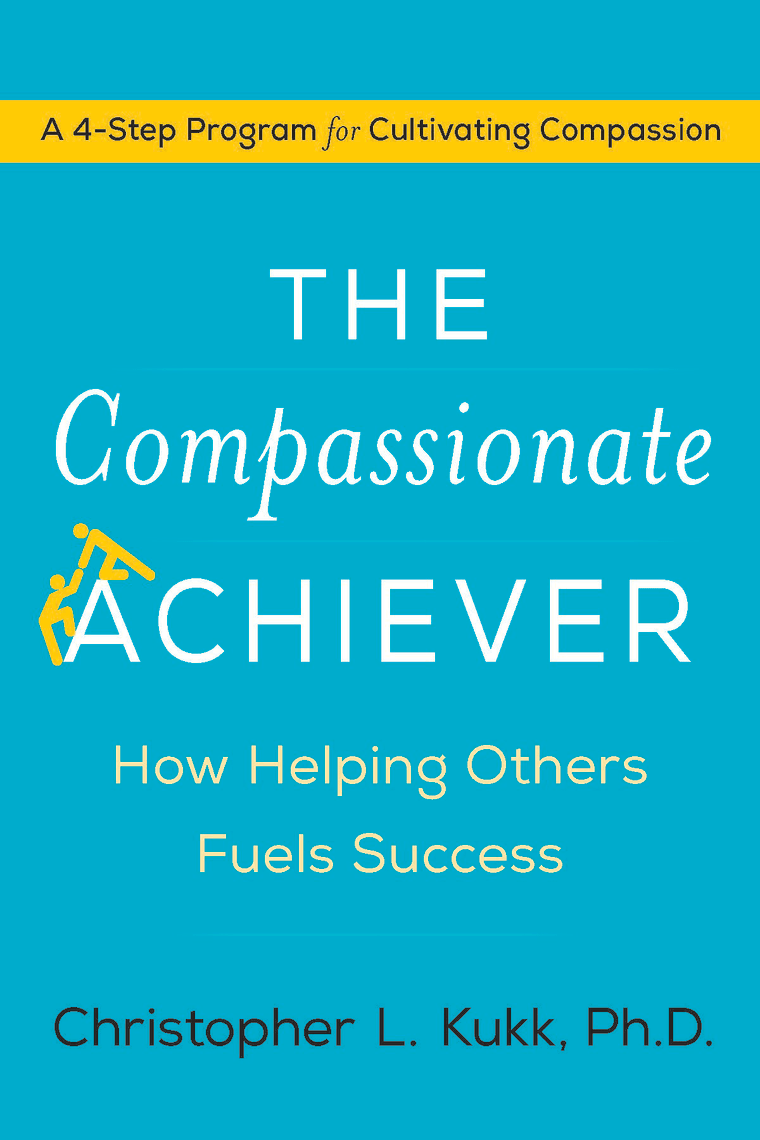We’ve often heard that if you want to succeed in life, you need to subscribe to the idea of “survival of the fittest.” Success, we are commonly told, has to be grabbed; it has to be taken or someone else will get it.
When I initially presented some of my ideas about the power of compassion in success and achievement, my critics pointed out that Darwinism made my argument weak: It was, in their way of thinking, the Jenga piece that would crash my faulty tower of compassion. I quickly acquired as many of Charles Darwin’s works as possible and carefully read through them searching for the Jenga pieces that could take down my argument.
Instead, I found that most of Charles Darwin’s work, especially “The Descent of Man,” not only supports the general argument of this book; it doesn’t support the idea of what most call Darwinism. Darwin’s research shows that “survival of the kindest” is more correct for explaining which species climb the evolutionary ladder efficiently and effectively.
According to biologists from Darwin to E. O. Wilson, cooperation has been more important than competition in humanity’s evolutionary success. Compassion is the reason for both the human race’s survival and its ability to continue to thrive as a species.
Charles Darwin not only did not coin the phrase “survival of the fittest” (the phrase was invented by Herbert Spencer), but he argued against it. In “On the Origin of Species,” he wrote: “it hardly seems probable that the number of men gifted with such virtues [as bravery and sympathy] ... could be increased through natural selection, that is, by the survival of the fittest.”
Darwin was very clear about the weakness of the survival-of-the-fittest argument and the strength of his “sympathy hypothesis” when he wrote: “Those communities which included the greatest number of the most sympathetic members would flourish best and rear the greatest number of offspring.” What Darwin called “sympathy,” in the words of Paul Ekman, “today would be termed empathy, altruism, or compassion.”
Darwin goes so far in his compassion argument as to tie the success of human evolution (and even “lower animals”) to the evolution of compassion. He writes that as the human race evolved from “small tribes” into large civilizations, concern about the well-being of others extended to include not just strangers but “all sentient beings.”

He even calls compassion “the almost ever-present instinct” when a fellow human witnesses the suffering of another. In other words, Darwin believed that compassion was a natural instinct that we all share. The bumper-sticker way of teaching and labeling Darwin’s ideas as exclusively focused on the “survival of the fittest” is not only misleading; it completely misses his idea that humanity’s success hinges on its level of compassion or sympathy.
Since Darwin’s fieldwork and writings, researchers from various fields have supported his perspective. Biologist and theorist Edward O. Wilson, who is known for his studies of ants and bees that have yielded insights into human existence, has shown that our evolution from tribal into a global society increasingly favors compassionate and cooperative over callous and competitive approaches to human interaction.
Wilson calls our “selfish activity” in interpersonal relations “the Paleolithic curse” that “hampers” success at all levels where groups of humans interact. Although selfishness may have been an advantage during the Paleolithic Era, when Homo sapiens lived more independently of each other, Wilson contends that it is “innately dysfunctional” in our highly interconnected societies and world.
RELATED: One CEO's Secret to Success: Always Lead With Kindness
One of the main reasons that compassion helps people succeed is called “group selection” in science or “teamwork” in sports and business. David Sloan Wilson and Edward O. Wilson (no relation) have recently doubled down on Darwin’s argument, stating that “our ability to function as team players in coordinated groups enabled our species to achieve worldwide dominance, replacing other types of hominid and a range of other species along the way.”
The Wilsons are not saying that selfishness, ruthlessness, and meanness play no part in evolution or reality; instead, they contend that compassion, altruism, generosity, and cooperation play greater roles. If you overlay their logic onto sports teams, local communities and nations, both Darwin and the Wilsons are arguing that groups made up self-interested people will fail more than they succeed. In contrast, groups consisting of mainly “survival of the kindest,” compassionate people will succeed more than they fail.
Why? The members of the selfish group are looking out only for themselves, and if others in their group fall, they see it as strengthening their own survival within it: One less competitor to worry about. Over time, as Darwin noted, their membership dwindles relative to the compassionate group. As E. O. Wilson writes in “The Meaning of Human Existence”: “Within groups selfish individuals beat altruistic individuals, but groups of altruists beat groups of selfish individuals.”
Selfish people and even bullies may win a couple of rounds or sets in the game of life, but they rarely win the match or game; it is the compassionate people who win.
Adapted from The Compassionate Achiever: How Helping Others Fuels Success by Christopher L. Kukk, Ph.D. Copyright ©2017 by Christopher L. Kukk, Ph.D., published by HarperOne, an imprint of HarperCollins Publishers.
